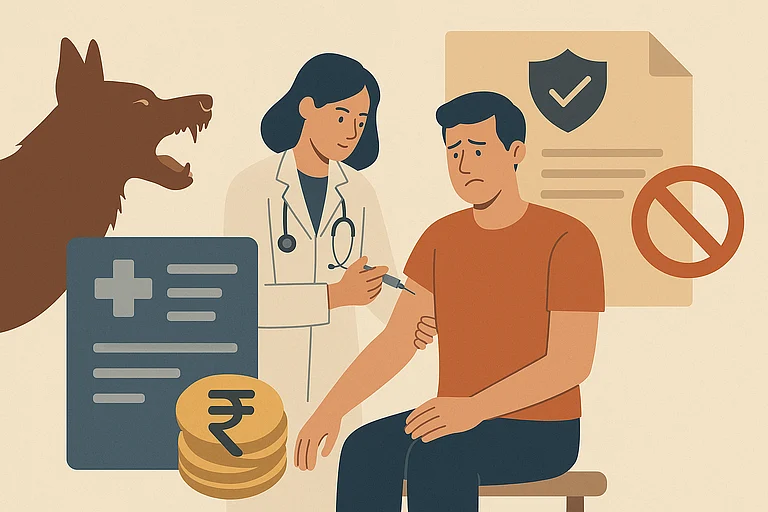GST 2.0: Given the increasing costs of healthcare amid rising medical inflation, having good insurance coverage can save families from financial burden during emergencies. Starting today, all individual health and life insurance premiums will not attract the 18 per cent GST. While customers are spared GST, insurers lose the ability to claim Input Tax Credit (ITC) on their own expenses, from agent commissions to office rentals and software. Know how this could affect your premiums.
Zero GST On Individual Health, Life Insurance From Today; What This Means For Your Premiums
GST Reforms 2.0: The immediate relief will be visible in many ways, for instance, annual premiums will fall by nearly 18 per cent, making it easier to budget for health or life cover. Senior citizens, who generally face higher premiums, stand to save the most
Starting today (September 22), individual health and life insurance policies will come without the additional burden of any Goods and Services Tax (GST).
The move, announced by Finance Minister Nirmala Sitharaman at the 56th GST Council meeting earlier this month, is part of GST 2.0 reforms and is aimed at making insurance more affordable.
Until now, all individual health and life coverage has attracted 18 percent GST. That meant a health insurance policy with a base premium of Rs 15,000 would cost around Rs 17,700. From September 22, the same cover costs exactly Rs 15,000 (at least on paper).
What the exemption means for policyholders
The benefit is straightforward for anyone buying a new individual policy today or renewing after the cut-off. Family floaters, senior citizen policies, and top-up or super top-up plans are also covered. However, employer-provided group insurance will not fall under this exemption.
The immediate relief will be visible in many ways, for instance, annual premiums will fall by nearly 18 per cent, making it easier to budget for health or life cover. Senior citizens, who generally face higher premiums, stand to save the most. The GST-removal also creates room for policyholders to upgrade their coverage or add riders without inflating costs too much.
For example, a Rs 20,000 annual health cover that earlier cost Rs 23,600 inclusive of GST now reverts to the base Rs 20,000. That’s a direct saving of Rs 3,600 a year.
The fine print on timing
Since GST is a transaction-based tax, the exemption only applies to payments made on or after September 22. If your renewal date was September 21 or earlier, you would still have been charged GST, even if you delayed payment into the grace period.
Similarly, for new policies, both the policy issuance date and the risk commencement date matter. If both fall after September 22, GST will not apply. But if the risk commencement date is earlier, the old tax slab may still hold. Insurers are expected to refund GST in some edge cases, though customers may need to follow up.
Multi-year prepaid policies will not benefit, since the exemption does not apply retrospectively. Cancelling and repurchasing within the “free look” period is technically possible, but deductions and underwriting risks make it a complicated workaround.
Why insurers may not pass on full 18 per cent
While customers are spared GST, insurers lose the ability to claim Input Tax Credit (ITC) on their own expenses, from agent commissions to office rentals and software. That cushion helped offset costs earlier. Without it, insurers may eventually adjust base premiums upwards.
Consider this: if a policy’s base premium was Rs 1,000 plus Rs 180 GST earlier, the total payable was Rs 1,180. Now, if insurers revise the base premium to Rs 1,027 to cover lost ITC, you still save, but only about 15 per cent instead of the full 18 per cent.
How insurers handle this trade-off will depend on market dynamics. Larger companies may absorb costs to stay competitive, while smaller ones could pass some of it on. Either way, policyholders are unlikely to feel the full 18 per cent benefit for long.
The Bottom Line
Given the increasing costs of healthcare amid rising medical inflation, having good insurance coverage can save families from financial burden during emergencies. The GST-removal could encourage more people to buy insurance and look at broader coverages.
In this context, the exemption is a welcome step. Starting today, the premium you pay for a health or life cover is going to be smaller than it used to be. The real test will be in the months ahead, whether insurers keep premiums stable or quietly raise base rates. And this where regulatory oversight by the Insurance Regulatory and Development Authority of India (Irdai) will matter, to ensure the intent of making insurance affordable is not diluted.


